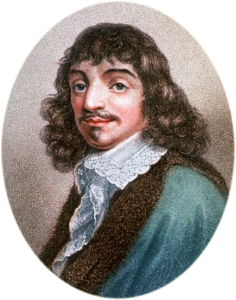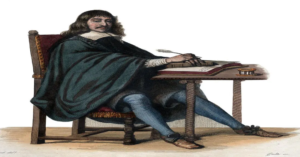Descartes natural philosophy and the nebular hypothesis
René Descartes: The Father of Modern Philosophy – A Comprehensive Analysis

The dawn of the 17th century witnessed an intellectual revolution that would forever alter the landscape of Western philosophy, and at its epicenter stood René Descartes (1596-1650), a French mathematician, scientist, and philosopher whose radical approach to knowledge and reality earned him the enduring title “Father of Modern Philosophy.” This designation reflects not merely historical chronology but fundamental reorientation in how philosophers conceived their enterprise—from reliance on ancient authority and theological dogma to the primacy of human reason and systematic doubt. Descartes accomplished nothing less than setting the agenda for modern philosophical inquiry, establishing the mind-body problem as a central concern, developing the methodological skepticism that characterizes much of modern science, and bridging the previously separate domains of algebra and geometry through his revolutionary coordinate system.
The essence of Descartes’ revolution lies in his relentless pursuit of certainty in a world of intellectual upheaval. Living during the Scientific Revolution, which challenged Aristotelian physics and Ptolemaic cosmology, Descartes sought to reconstruct knowledge from its foundations using nothing but the undeniable truths discoverable by human reason. His famous declaration “cogito, ergo sum” (“I think, therefore I am”) became the epistemological cornerstone for modern thought, asserting the primacy of subjective consciousness as the starting point for philosophy. This essay will explore Descartes’ historical context, methodological innovations, metaphysical dualism, epistemological contributions, scientific achievements, and enduring legacy to understand why his thought represents such a decisive break from previous philosophical traditions and why it continues to influence contemporary debates in philosophy, cognitive science, and beyond.
Historical Context: The Intellectual Landscape Before Descartes
To appreciate the revolutionary nature of Descartes’ philosophy, one must understand the intellectual milieu from which it emerged. The late Renaissance and early modern period in Europe was characterized by significant paradigm shifts across multiple domains of knowledge:
- The Scientific Revolution: The heliocentric model of Copernicus (1473-1543), refined by Kepler (1571-1630) and Galileo (1564-1642), challenged the Aristotelian-Ptolemaic cosmology that had dominated Western thought for centuries. Galileo’s empirical approach and mathematical modeling of nature particularly influenced Descartes’ scientific thinking.
- Religious and Political Upheaval: The Protestant Reformation (1517-1648) shattered Christian unity in Europe, leading to religious wars and epistemological crises regarding authoritative sources of knowledge. Descartes lived during the Thirty Years’ War (1618-1648), which combined religious and political conflicts.
- Scholastic Dominance: University education remained dominated by Scholastic Aristotelianism, which synthesized Christian theology with Aristotle’s philosophy. This tradition emphasized final causes (teleological explanations) and syllogistic reasoning based on authoritative texts.
Rejecting Scholasticism and Embracing Systematic Skepticism
Descartes’ philosophical method emerged from his profound dissatisfaction with the Scholastic tradition that dominated European universities. He criticized Scholasticism for its reliance on sensory experience (which he deemed unreliable), its dependence on Aristotelian authority rather than reason, and its use of substantial forms and final causes in scientific explanations. In the Discourse on Method (1637), Descartes lamented that philosophical inquiry yielded “no one thing about which there is not some dispute, and thus nothing that is not doubtful.”
The Stages of Doubt and the Cogito
Descartes’ methodological doubt proceeds through several increasingly radical stages:
- Sensory Deception: First, Descartes noted that senses sometimes deceive us (e.g., distant objects appear small), so sensory knowledge is doubtful.
- Dream Problem: Next, he observed that there are no definitive signs to distinguish waking experience from vivid dreams, so even seemingly immediate sensory experience becomes doubtful.
- Evil Demon Hypothesis: Most radically, Descartes entertained the possibility that an omnipotent “evil genius” might be systematically deceiving him about all reality, including mathematical truths.
This comprehensive skepticism leads Descartes to the climactic realization that even if an evil genius deceives him about everything, he must exist to be deceived: “I think, therefore I am” (cogito, ergo sum). This first principle becomes the archimedean point upon which Descartes rebuilds knowledge. The cogito is significant not merely as a particular truth but as a model of certainty—it is known clearly and distinctly through direct intellectual apprehension rather than through fallible sensory experience.
Rules for the Direction of the Mind
In his earlier unpublished work, Rules for the Direction of the Mind (composed circa 1628 but published posthumously), Descartes outlined a more positive method for acquiring knowledge. He proposed four precepts that would enable reason to arrive at certain knowledge:
- Never accept anything as true that is not known evidently to be so (avoid prejudice and precipitous judgment)
- Divide difficulties into as many parts as possible (analysis)
- Order thoughts from simplest to most complex (synthesis)
- Make enumerations complete and reviews general (comprehensive verification)
These rules reflect Descartes’ mathematical orientation, particularly his success in algebraic geometry. He believed that the methodical reasoning characteristic of mathematics could be extended to all domains of knowledge, including philosophy and science. This methodological universalism represents a key aspect of Descartes’ modernism—his conviction that human reason, properly directed, could achieve certain knowledge across all investigable domains.
Cartesian Metaphysics: Dualism, God, and the Foundations of Knowledge
Mind-Body Dualism
From the cogito, Descartes deduced the essence of the thinking self: “I was a substance whose whole essence or nature is only to think.” This led to his famous mind-body dualism—the doctrine that reality consists of two fundamentally distinct kinds of substance:
- Res cogitans (thinking substance): Characterized by thought, indivisibility, and lack of extension
- Res extensa (extended substance): Characterized by extension in space, divisibility, and mechanical behavior
This Cartesian dualism represented a radical departure from the Aristotelian-Scholastic hylomorphic view that soul and body form a unitary substance. It provided a metaphysical foundation for mechanistic physics, protected human freedom and immortality, and attempted to resolve epistemological problems by locating certainty in the thinking self.
Proofs of God’s Existence and the Validation of Knowledge
After establishing his own existence and the distinction between mind and body, Descartes turned to proving God’s existence, which served crucial epistemological functions:
- The Causal Argument: Descartes argues that his idea of an infinite, perfect being must have been caused by such a being, since nothing less could produce such an idea.
- The Ontological Argument: Adapted from Anselm, stating that existence is a perfection necessarily belonging to the concept of an infinitely perfect being.
God’s veracity guarantees the reliability of clear and distinct perceptions, validating knowledge of the external world. Critics call this the Cartesian Circle.
The Mind-Body Relationship and Cartesian Interactionism
Despite their substantial distinction, Descartes maintained that mind and body interact intimately:
- The mind affects the body through volition
- The body affects the mind through sensation and passion
Critics such as Princess Elisabeth questioned how an unextended mind could move an extended body. Descartes appealed to a primitive notion of mind-body union, but many found his solution unsatisfactory.
Descartes Epistemology: Rationalism, Intuition, and Deduction

Rationalism vs. Empiricism
Descartes is classified as a rationalist, emphasizing reason rather than experience as the primary source of knowledge. Contrasted with empiricism (Locke, Hume), Cartesian rationalism includes:
- Innate Ideas: Ideas of God, mathematics, and the mind are innate
- Intuition and Deduction: Intellectual intuition and deductive reasoning dominate over sensory induction.
- Priority of Mind: Knowledge of one’s mind is epistemologically prior to the external world.
However, Descartes’ practice also includes empirical methods, e.g., in optics, meteorology, and anatomy.
The Criteria of Truth: Clarity and Distinctness
Descartes proposed clarity and distinctness as criteria for truth. Clear perceptions are present and accessible to the attentive mind, while distinct perceptions are precise and different from all other objects. God’s veracity underwrites the reliability of these criteria.
Descartes Cartesian Theory of Ideas
Descartes’ epistemology centers on the theory of ideas, which distinguishes:
- Innate Ideas: Present from birth
- Adventitious Ideas: Derived from external objects
- Factitious Ideas: Constructed by the imagination
He also distinguishes formal reality (existence as a mental state) from objective reality (representational content), critical for his proof of God’s existence.
Scientific Contributions: Mathematics, Physics, and Physiology
Analytic Geometry and the Cartesian Coordinate System
Descartes developed analytic geometry, unifying algebra and geometry. Innovations include:
- Using coordinates to represent points numerically
- Representing geometric curves with algebraic equations
- Solving geometric problems algebraically and algebraic problems geometrically
Mechanistic Physics and Physiology
Descartes proposed a mechanistic philosophy of nature, rejecting final causes. He theorized:
- The universe is a plenum (no void)
- All phenomena explained by matter in motion
- Matter is defined by extension
- Natural laws are mathematical and universal
In Treatise on Man, he described living organisms as machines, except humans, combining mechanical bodies with rational souls.
Empirical Research and Methodological Flexibility
Descartes conducted anatomical dissections, optical experiments, and meteorological observations. He combined rational foundations with experimental verification.
Critiques and Legacy: Assessing Descartes Modernity
Historical Criticisms and Controversies
- Cartesian Circle: Critics like Arnauld noted potential circular reasoning
- Mind-Body Interaction: Questioned by Princess Elisabeth and Gassendi
- Innate Ideas: Rejected by Locke and empiricists
- Animal Mechanism: Viewed as implausible and ethically troubling
Descartes Influence on Later Philosophy
- Rationalist successors: Spinoza, Leibniz, Malebranche
- Empiricist response: Locke, Berkeley, Hume
- Kantian synthesis: Combining rationalism and empiricism
- Phenomenology: Husserl’s focus on consciousness
Descartes in Contemporary Thought
Legacy of Descartes’ remains active in:
- Cognitive Science: Mind as computation, critique of dualism
- Foundationalism: Influence on modern epistemology
- Critiques of Modernity: Postmodern/feminist critiques
Descartes: The Enduring Significance of Cartesian Philosophy
So René Descartes earns the title Father of Modern Philosophy through radical reorientation toward the knowing subject, methodological skepticism, dualistic metaphysics, and mathematical approach. While specific doctrines have been transformed.Then Cartesian framework continues to shape contemporary thought.
Here understanding Descartes illuminates the origins of modern thought, its methods, aspirations, and blind spots. His legacy endures in the ongoing pursuit of knowledge and the rational capacity encapsulated in “I think, therefore I am.”